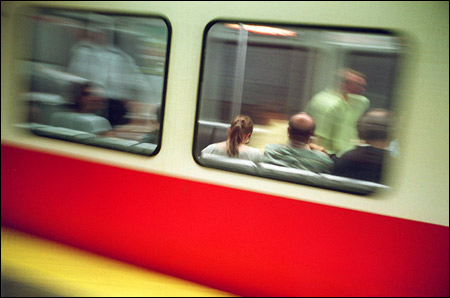Commuter programs work at Harvard
EPA lauds Harvard as commuter-friendly workplace

In the Boston area, the average commuter will spend 58 maddening hours this year stuck in traffic. Even NPR isn’t that good.
So for the past three years, Harvard’s CommuterChoice program has been doing its part to lure employees out of their cars with a range of commuter-friendly services from subsidized public transportation passes to guaranteed rides home.
Now, the Environmental Protection Agency (EPA) has recognized the University’s efforts by naming it one of New England’s Best Workplaces for Commuters. In addition, Harvard-affiliated hospitals Beth Israel Deaconess Medical Center, Brigham and Women’s Hospital, Dana-Farber Cancer Institute, and Massachusetts General Hospital also made the list of 83 employers across New England.
Learn more about
Harvard’s commuter programs
Learn more about
the EPA’s Best Workplaces for Commuters program
Our average commuter is spending more than an entire workweek stuck in traffic each year,” said Patty Klavon, manager of the EPA program. “Cars and trucks are responsible for more than half of New England’s ozone-forming pollution.”
Harvard won the distinction for its array of programs, including a generous public transportation subsidy that discounts T passes 40 percent, a guaranteed ride home in case of an emergency, carpool matching through its Web site, and discounted membership to the Zipcar car-sharing program, says Holly Bogle, program manager of CommuterChoice.
Harvard, with its proximity to the major transportation hub of Harvard Square bus and subway station and a relative scarcity of parking, is far ahead of the curve in promoting alternative commuting. While 73 percent of Massachusetts commuters drive to work alone, Harvard’s drive-alone rate is 27 percent of University affiliates, Bogle says. Nearly half of Harvard’s employees live within three miles of the University, she says, and 32 percent walk to work.
“What’s impressive about this distinction is that there are not many other universities in the Boston area that offer as comprehensive a list of benefits for commuters,” says Bogle. Massachusetts Institute of Technology and the University of Massachusetts, Amherst, are the only other universities in the state named a Best Workplace; elsewhere in New England, Dartmouth College, Yale University, and the University of Vermont share the distinction.




